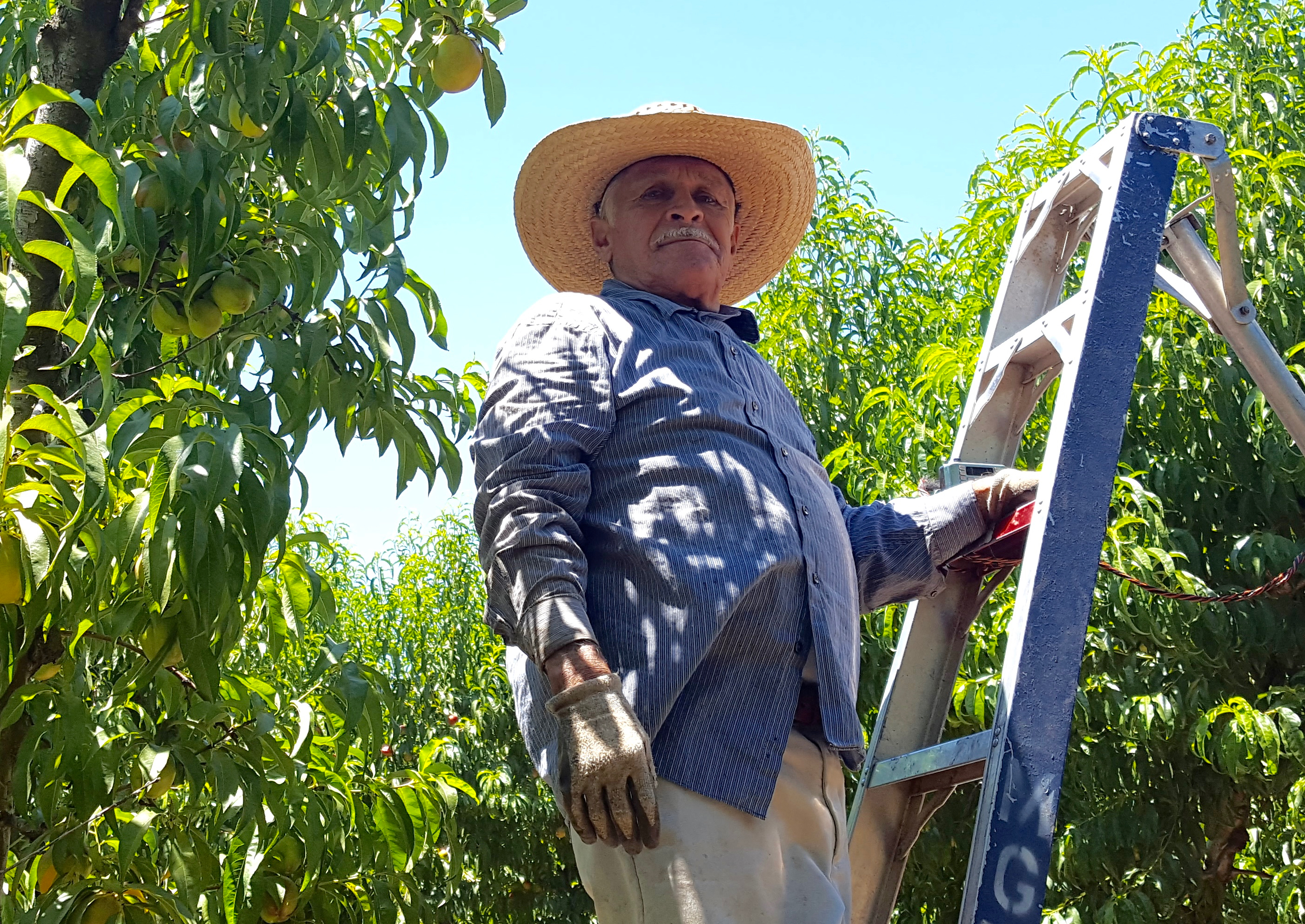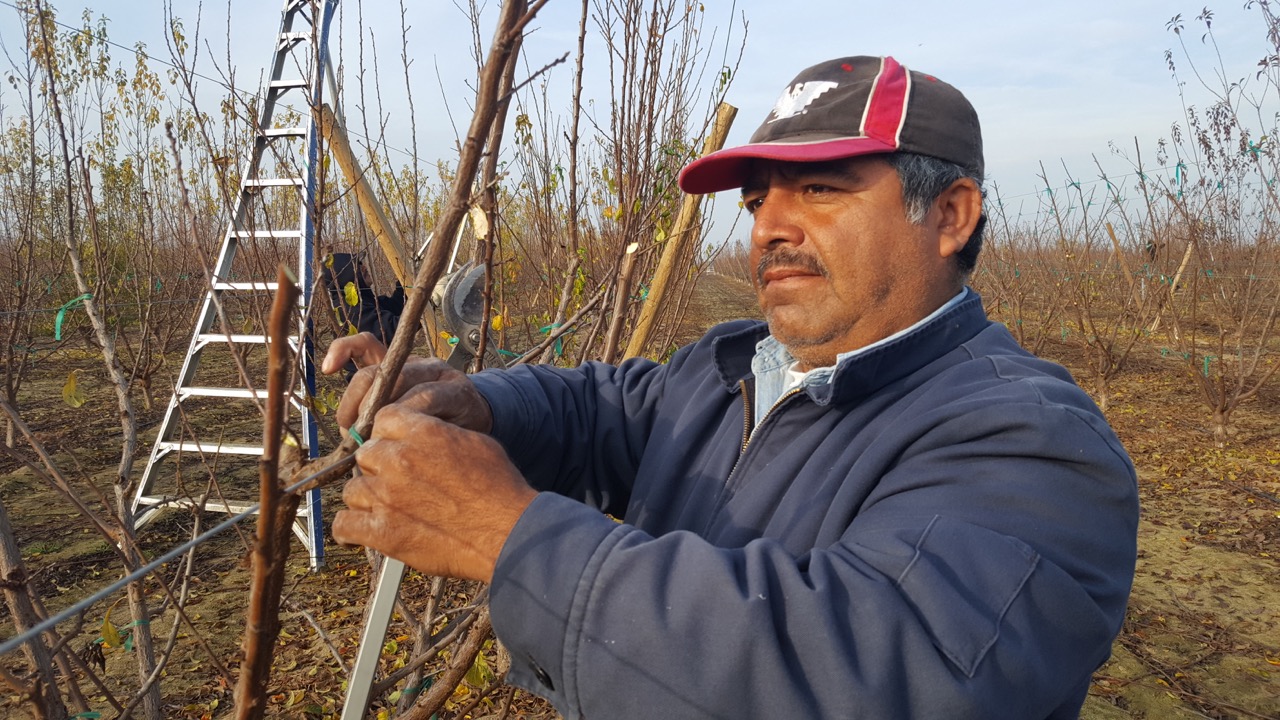Who Safeguards CA Farm Workers’ Rights? Part 5
Post-Labor Day, Forced Unionization Hearing at CA Supreme Court
By Laurie Greene, Founding Editor
Forced Unionization Hearing
On Tuesday, Sept. 5, one day after Labor Day, busloads of concerned farmers and farm workers will arrive at the Supreme Court of California in San Francisco to support Gerawan Farming and farm workers—and quite possibly 80,000 family farms in the state—against forced unionization in the first case on the Court’s agenda: Gerawan Farming, Inc. v. Agricultural Labor Relations Board (United Farm Workers of America, Real Party in Interest) and Consolidated Case, S227243 (Kline, P. J., assigned justice pro tempore).
Gerawan Case History
Explaining the case history, David Schwarz, attorney for Gerawan Farming, Inc. from the Los Angeles-based law firm of Irell & Manella LLP, said, “This case began almost five years ago in mid-October of 2012. The United Farm Workers (UFW) sent a letter to Gerawan Farming demanding that the company resume bargaining over a collective bargaining agreement. The UFW had won an election at Gerawan in 1990 and was certified to represent the workers by the California Agricultural Labor Relations Board (ALRB) in 1992. After one preliminary negotiating session in early 1995, the union disappeared and wasn’t heard from by Gerawan for nearly 20 years.”
“The UFW resurfaced in late 2012 demanding negotiations,” Schwarz stated, “but after ten bargaining sessions, the union abandoned the bargaining table.” This scenario was similar to UFW’s behavior after having won several certification elections by California farm workers employed on separately-owned farms but was unable to obtain first contracts with many growers on behalf of these farm workers.
Farm Worker Rights under the Agricultural Labor Relations Act
According to the ALRB website, all agricultural employees in California, whether or not they are represented by a labor organization (union), have certain rights under the Agricultural Labor Relations Act (ALRA or Act). The purpose of the Act is to ensure peace in the agricultural fields by guaranteeing justice for all agricultural workers and stability in labor relations. The ALRA became law in 1975.
The Act describes and protects the rights of agricultural employees to make their own decisions about whether or not they want a union to negotiate with their employer about their wages, hours, and other working conditions. Where the employees, through a secret ballot election, have selected a union to represent them, the Act requires that the employer bargain in good faith with the union concerning wages, hours, and other working conditions.
The Agricultural Labor Relations Board (ALRB) is the state agency established to enforce the Act.
Mandatory Mediation and Conciliation (MMC)
“At this juncture, UFW invoked a process known as “Mandatory Mediation and Conciliation (MMC), a euphemism for forced-contracting, passed by the legislature in 2002 at the behest of UFW,” Schwarz explained. “Through MMC, the State of California imposes a contract on the employer and its farm workers at the union’s request. In Gerawan’s case, the failure to reach a contract can be explained by the failure of the UFW to show up and attempt to negotiate; however, that failure to bargain—or for that matter, the union’s complete abandonment of the Gerawan farm workers—was deemed irrelevant in the eyes of the ALRB.”
“The ALRB argued that the union certification in 1992 means the UFW remains the perpetual representative of Gerawan workers now and forever,” said Schwarz, “and until such time as the workers vote the union out through a petitioned election process known as decertification.” The ALRB disregarded both UFW’s failure to represent Gerawan farm workers in any successful contract negotiation and the UFW’s failure to qualify to collect union dues from Gerawan farm workers. Most significantly, the ALRB disregarded the legally-sanctioned and ALRB-supervised election on November 5, 2013, in which Gerawan farm workers had the opportunity to vote to decertify the UFW or not—the ballots of which have never been counted and are believed to be stored in an unknown, unsecured location.
“Let’s be clear,” Schwarz explained, “at no point after this union was certified until this union invoked the MMC process, was there an allegation that Gerawan refused to show up or refused to negotiate the terms of the contract. So this is not a case about a grower refusing to show up at the bargaining table or a grower inserting that the abandonment forfeits the right of the union to bargain.”
“Rather, this is a case about whether or not the union’s abandonment means that it forfeits the right to compel the State of California to force a contracting process on the workers. And that’s the key difference: between duty to bargain, which is a continuous bargain, and the right, as the union claims, to impose a state-ordered contract.”
What is at Stake for Farm Workers?
Tal Cloud, president and co-founder of Fresno-based family-owned Paper Pulp & Film, Inc., a converter of printing and industrial papers, including raisin (drying) trays, is part of the team that organized the trip. Cloud said, “The UFW and the California ALRB are hoping the California Supreme Court will rule in their favor by forcing unionization on California farms and farm workers—the next flash point in the two-decade long battle between Gerawan Farming and the UFW.”
“People don’t understand that this is incrementalism,” Cloud said. “If the California Supreme Court rules against Gerawan, it literally puts every agricultural operation of any size in the state right in the “bulls-eye” for mandatory UFW unionization, and that is what is so concerning. And although people do not understand it, the laws are already all there; they just need to be formalized. So, yes, it is really scary.”
“The ALRB has power in these courts due to California legislators who have given the ALRB all these powers, but without checks or balances,” said Cloud. “So, you have an agency that basically plays god with people’s lives and there are no legitimate governmental organizations or courts looking at it, until now that [the forced unionization case] has come to the California Supreme Court.”
The upcoming California Supreme Court hearing follows the UFW’s appeal of a lower court ruling in favor of Gerawan on the same issue in 2015. “We are hoping that the Court goes by the law, and does not give [the ALRB and UFW] this kind of opportunity to really put all of our operations in California at risk for forced unionization and forced contracts,” Cloud said.
“The bus trip on Tuesday is to make a statement and not sit by silently. The hearing is at 9:00 A.M., and more than 300 people from the Valley are going. We are leaving at 3:30 AM, providing food for our passengers and protesting outside the Supreme Court. The UFW also will be rallying at the Supreme Court.
It remains uncertain if farm workers will be allowed inside the courtroom. Cloud said, “There has already been a lot of back and forth about not allowing any farm workers, or Silvia Lopez (the Gerawan farm worker spokesperson) into the courtroom. The attorneys are still fighting on that. But there will be a big protest, so to speak, outside.”
“There are public areas for us to be in, and we will be peaceful like all the other demonstrations that we have done,” Cloud said. “My hope is that everyone stays safe and we do not have extremists or rabble-rousers there who try to cause problems.”
Cloud said there is a glimmer of hope for the farming industry because the UFW lost to the lower courts. “But, you just don’t know. We are hoping these farmers, farm workers and protesters will bring attention to this issue,” he said.
Once the California Supreme Court hearing is completed, the court will have 90 days to make its ruling. “The reality is: If agriculture does not get behind the effort against MMC now, and the California Supreme Court reverses the lower court’s decision, literally every farming organization in California could face unionization. And that is a scary thought,” said Cloud.
“Likewise, if the ruling goes against the UFW,” Cloud said, “I am sure the case will go to United States Supreme Court, which would certainly be a do-or-die point for agriculture.”
Who Safeguards CA Farm Workers’ Rights? Part 6 – Facts vs. PR














